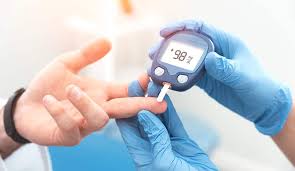A sugary snack or drink can raise your blood sugar fast. To treat low blood sugar more effectively, you should also carry fast-acting carbs and never drink alcohol without food. Likewise, physical activity can lower your blood sugar. Therefore, you should check your blood glucose levels before exercising or playing sports. If you are still alert but unable to perform the activities, you should seek medical assistance. Lastly, you should eat a healthy snack before engaging in physical activity.
When your blood glucose level drops below normal, your body responds by producing a surge of epinephrine, a “fight or flight” hormone. Symptoms of low blood sugar include drowsiness, confusion, seizures, and even loss of consciousness. While hypoglycemia is often a minor inconvenience, it is important to understand how to manage this condition. If you’re experiencing low blood sugar, consult a doctor right away.
If you have frequent episodes of low blood sugar, you should note these events so that you can consult a health care provider for emergency treatment. If you have episodes of low blood glucose often, tell your health care team about them. They may be able to make some adjustments to your insulin or exercise routine or change your meal plan. However, keep in mind that these changes may increase your A1C, but they are worth it for the early warning symptoms.
While glucose tablets, fruit juice, and regular soda are a great way to raise your blood glucose quickly, you should consider eating a meal or snack that contains fast-acting carbohydrates. These are easily absorbed by the body. After you eat your snack or drink, check your blood sugar again in 15 minutes and continue to do this every 15 minutes until the symptoms go away. If you continue to experience symptoms, call 911.
Keeping a log of your blood sugar levels can help you understand when to take your insulin. By monitoring your blood sugar before and after meals, you can learn how to react to different activities. You can also try swapping starchy sides for vegetables. And don’t forget about the benefits of a snack after exercising. After exercising, you can reduce the effects of sitting all day by consuming something that lowers your blood sugar levels.
If you feel hypoglycemic, your diet should be balanced. Skipping meals will deprive your body of glucose, making it more difficult to avoid hypoglycemia. So, eat balanced meals throughout the day, and always keep some snacks nearby. If you don’t have a food plan, you should try taking rapid-acting insulin instead. If you’re having a difficult time eating, make sure you don’t skip your evening meal. Also, try to match your medications and meals.
If you’re experiencing repeated episodes of hypoglycemia, visit your health care provider as soon as possible. Even if you’re not diabetic, your health care provider will want to review your medical history to identify any problems you’re having. You can also make a list of symptoms so you can remember what to do in the event of a hypoglycemic episode. If you’re too busy to visit your doctor, you can make an appointment with your primary care provider.


